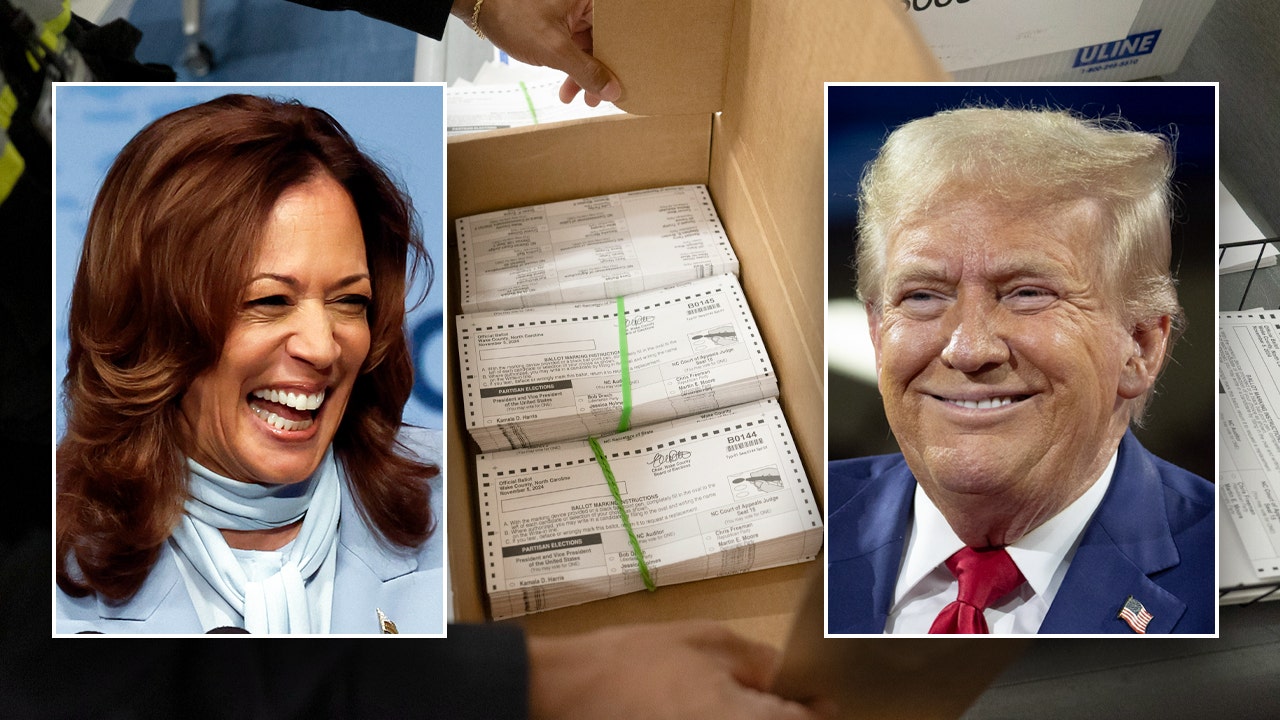We’ve seen impeachment trials a lot on Capitol Hill in recent years. The Senate conducted two impeachment trials of former President Trump in early 2020 and early 2021.
But no living American has ever witnessed the impeachment trial which is about to begin in the United States Senate.
Blink and you might miss it.
The House impeached Homeland Security Secretary Alejandro Mayorkas in February. The House accuses Mayorkas of not following the law when it comes to securing the border and lying to Congress. Mayorkas became only the second cabinet secretary ever impeached. The first was Secretary of War William Belknap in 1876. Senate Majority Leader Chuck Schumer, D-N.Y., hasn’t tipped his hand yet on how he’ll handle the articles, but Schumer is expected to move to dismiss or table the articles. The Senate must vote to do that. If all 51 senators who caucus with the Democrats vote to punt, they can extinguish the trial quickly.
ABBOTT SENDS BIDEN MESSAGE AS TEXAS NATIONAL GUARD REINFORCES BORDER RAZOR FENCING
But don’t expect Republicans to go quietly.
House Speaker Mike Johnson, R-La., says the Senate is obligated to conduct a full trial of Mayorkas and render judgment. Sen. Mike Lee, R-Utah, and other Republicans may try to elongate the trial. They argue that senators have a constitutional obligation to listen to arguments for and against impeachment. So expect them to make points of order – possibly forcing the Senate to vote – to consider the articles. However, Senate Democrats can euthanize each of those points of order – if they stick together and table each of the GOP motions.
Still, the trial might not last long. But here’s the minimum which must unfold on the Senate floor over the coming days.
July 26, 2023: DHS Secretary Alejandro Mayorkas testifies to the House Judiciary Committee. (Fox News)
Expect the following:
The House voted to impeach Mayorkas by a solitary vote in February. The House failed in its first effort to impeach after Rep. Al Green, D-Tex., materialized unexpectedly (directly from the hospital) and foiled the GOP’s plans. After a second vote to impeach, the House then appointed 11 impeachment “managers.” They serve as de facto “prosecutors,” presenting the House’s case to the Senate. House Homeland Security Committee Chairman Mark Green, R-Tenn., serves as the lead impeachment manager. All 100 senators will sit as “jurors” when the trial begins. Mayorkas does not appear at the trial nor is he required to attend.
On Wednesday, House Sergeant at Arms Bill McFarland and Acting Clerk of the House Kevin McCumber will escort the managers and the articles of impeachment themselves from the House, across the Capitol Rotunda, to the Senate wing of the Capitol. That’s where the Senate will “receive” the articles of impeachment. Senate Sergeant at Arms Karen Gibson will greet the House entourage in the Senate wing of the Capitol and escort everyone to the Senate chamber.
All 100 senators will await the coterie from the House. Sen. Patty Murray, D-Wash., is the President Pro Tempore of the Senate – the most senior member of the majority party. She will preside over the impeachment trial – not Chief Justice of the United States John Roberts. The Chief Justice typically only presides over impeachment trials involving the President or Vice President. Roberts was in charge for former President Trump’s first trial in 2020. But then-Sen. Patrick Leahy, D-Vt., presided over the second impeachment trial in 2021. Leahy was the Senate’s President Pro Tempore back then.
MARJORIE TAYLOR GREENE’S RED LINE ON SPEAKER JOHNSON
The impeachment articles are then read to the Senate.
It’s possible Lee and company could try to offer their motions then. But Murray could rule him out of order. The Senate hasn’t even sworn-in senators yet to adjudicate the trial. Moreover, the Senate could find itself either in legislative session (working on a bill) or executive session (working on a nomination) when the Senate stops its action to receive the articles. Therefore, motions by senators pertaining to the trial aren’t applicable at that moment.
Under Senate impeachment rules, things really get started the next day at 1 pm ET. That’s when the Senate swears in the senators. Gibson will announce that everyone should remain quiet “on pain of imprisonment.” At that point, we are technically “in trial.” Thus, motions are in order. In the past, the Senate could consider a resolution to establish parameters for how to handle the trial. Schumer could possibly move immediately to dismiss or table the articles. Or Lee and company could make their motions as well.
US Senators vote in the second impeachment trial of former President Donald Trump. (Associated Press)
But here’s the problem for Republicans:
Schumer is the Senate Majority Leader. As Majority Leader, Schumer is recognized first by Murray, the presiding officer. Schumer could potentially short-circuit anything Republicans want to do by jumping ahead and making a motion to table or dismiss. The Senate would then vote on whether to halt proceedings right there. Republicans may never get a shot.
It is important to note that senators don’t “debate” during an impeachment trial. However, they could agree to debate in closed session – not out in the open.
I WANT MY MTV (MOTION TO VACATE): SPEAKER JOHNSON FACES POTENTIAL THREAT WHEN CONGRESS RETURNS
However, a vote to dismiss the articles – or on anything Republicans cook up – carries political consequences for Democrats facing competitive re-election bids this fall. Think Sens. Sherrod Brown, D-Ohio, Jon Tester, D-Mont., Bob Casey, D-Mich., Tammy Baldwin, D-Wisc., and Jacky Rosen, D-Nev. Republicans will likely weaponize any roll call vote Democrats to truncate the impeachment trial. Republicans will try to portray these vulnerable Democrats as not taking the border or the charges leveled at Mayorkas seriously.
Department of Homeland Security Secretary Alejandro Mayorkas testifies before a House Homeland Security Committee on Capitol Hill in Washington, D.C., April 19, 2023. (REUTERS/Sarah Silbiger)
In short, the trial is likely to be short. Not the impeachment trials of former President Trump. The Senate spread out the first one over a period of 19 days. The second one consumed five days.
In fact, the model for a quick dismissal is an impeachment you probably haven’t heard of: Former federal judge Samuel Kent in 2009.
The House impeached Kent in June 2009. But Kent stepped down before the Senate trial began. The House then adopted a resolution to halt its “prosecution” of Kent. The Senate then voted to dispense with the articles before conducting a trial.
So Kent’s circumstances are not exactly what will go down with Mayorkas. But Kent’s scenario of a quick dismissal is closer to what could unfold in the next few days compared to the more robust trials of former President Trump.
Chad Pergram currently serves as a senior congressional correspondent for FOX News Channel (FNC). He joined the network in September 2007 and is based out of Washington, D.C.




